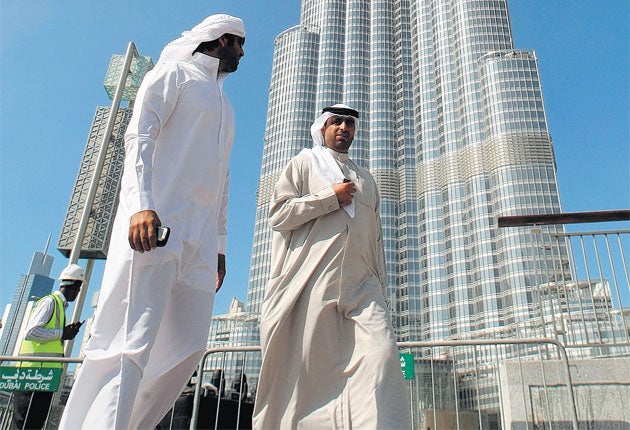The specialist sector where the sky is the limit
MBAs in Islamic finance are a good investment in the current economic climate, says Widget Finn

The Islamic finance industry is growing rapidly. There are currently an estimated 270 Islamic banks globally, with total assets of $265 billion. The global economic crisis has encouraged its increasing popularity as an alternative financial system where risk is shared between lenders and borrowers, and any form of interest is banned.
Along with the spread of Islamic finance comes a demand for graduates who are familiar with this specialised market. Professor Cedomir Nestorovic, a lecturer in Islamic finance at ESSEC, points out that this knowledge is essential for Western companies aiming to operate in the Middle East. “If you want to develop property in Saudi Arabia or sign an oil contract in Qatar, you’ll find the local financial market works to Islamic rules.”
While business schools in the West are starting to offer Masters and courses in Islamic finance, there is a noticeable shortage of MBA programmes that include electives on the subject. Cass Business School claims to offer the world’s first Executive MBA (EMBA) programme to include a specialist stream in Islamic finance. The EMBA was launched at its Dubai location in 2007, and currently 11 students out of the cohort of 60 are taking the Islamic finance elective.
“Before setting up this MBA in Dubai we spent over a year researching the market and seeking the advice of government agencies and financial institutions,” says Professor Ehsan Razavizadeh, regional director for Cass Business School in the Middle East. “The government of Dubai told us that they wanted to become a hub for Islamic finance in the region and were keen for Cass to help them build this area of expertise. The Islamic banking elective demonstrates Islamic finance in a holistic fashion in the context of modern and global financial systems of which it is an increasingly important part.”
The two-year Executive MBA combines monthly face-to-face sessions with distance learning, and draws its students from all over the world. “We have participants from Bahrain, Saudi Arabia, Lebanon and Syria since Islamic finance plays a major role in most countries in the Middle East,” he says, “but the programme isn’t limited by religion or nationality. There is lots of demand from lawyers who want to move into Islamic finance transactions, and people planning to set up their own financial operations in this market. Last year we had a Christian candidate from the US who’s a headhunter and wanted to become familiar with the Islamic finance industry in order to place people in the sector. One student who flies in from New York every month chose this programme because he couldn’t find a US business school with a similar offering, and also wanted to establish networks in this part of the world.”
Victoria Cox who is currently working as business services manager in a Dubai-based energy consultancy found the opportunity of combining a general MBA with Islamic finance “just too difficult to resist. I developed a passion Islamic finance when I was working for the UK government advising UK exporters on entering the UAE market, and did an MBA to help my move to the private sector. Islamic finance has an incredible growth potential – any ethical finance consumer will find it a very attractive option.”
The UK’s Bangor Business School is launching its established specialised MBA programme in Islamic Banking and Finance at its new London location in September. The programme is anatural fit for Bangor, says Muhamid Shahid Brahim, professor of Islamic banking and finance. “Bangor has an excellent reputation for banking, and also enjoys close ties with several countries on the Arabian peninsula”.
Grace Phiri left her job in conventional banking in Malawi to do the specialised MBA programme at Bangor. “I was interested in Islamic banking. Some banks in Malawi are already offering Islamic financial products and I believe this market will grow. I’m sure that having a knowledge of the subject will be very useful for my future career.”
Should more students be considering Islamic finance and banking as an option and should more business schools be offering it? Definitely, says Iqbal Asaria, visiting lecturer at Cass Business School. “Given the growth of Islamic finance, it is increasingly important for MBA students to study this subject to get a well-rounded exposure to current trends in finance.”
Though there are just four Islamic banks operating in the UK, the leading auditing firms – PriceWaterhouseCooper, KPMG, Ernst & Young and Deloitte have established independent Islamic finance divisions, and HSBC, Deutsche Bank, UBS and other financial services companies are, meanwhile, entering the Shariah compliant market.
Thom Polson, a director of the Geneva- based Islamic Wealth and Asset Management consultancy, did a Masters in Islamic banking at Bangor Business School and has some advice for MBA students. “Do a taster course in Islamic banking if you have any ambitions to work globally. In the Middle East Islamic banking is growing almost as fast as the skyscrapers.”
Join our commenting forum
Join thought-provoking conversations, follow other Independent readers and see their replies
Comments
Bookmark popover
Removed from bookmarks